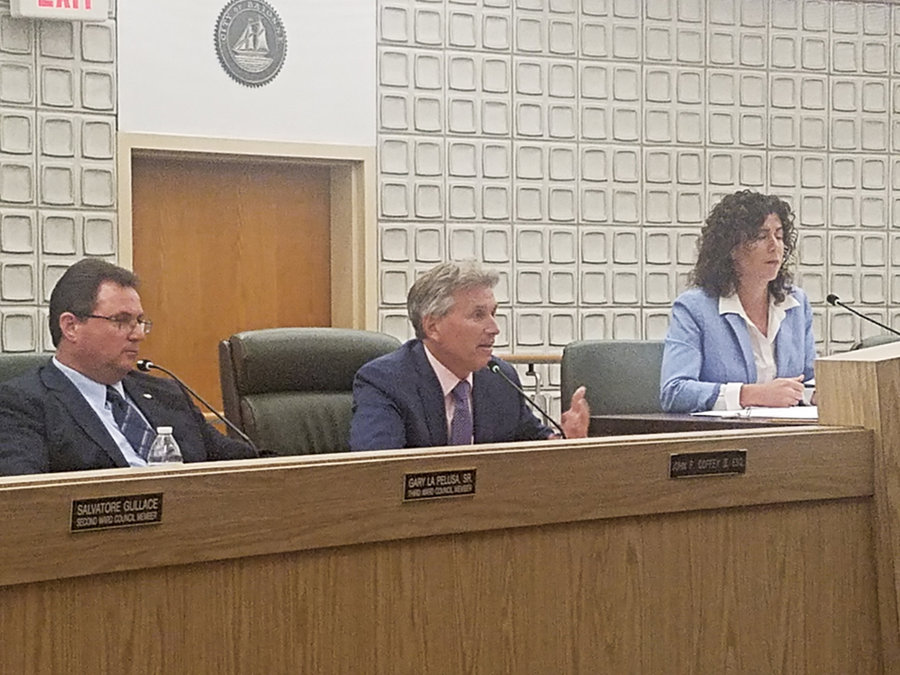Six months after introducing a budget and making subsequent adjustments for a $15 million Kate Howard development deal that fell through, the City Council passed a $135.5 million amended municipal budget. The vote was 4-1, with Third Ward Councilman Gary La Pelusa objecting. He cited displeasure with tax increases, and a 2.27-percent average increase in property tax, while developers receive tax abatements.
The final budget is virtually the same as the introduced budget. The council was just waiting to finalize the monetization of future Port Authority revenue, which was sold for $45 million to William & Blair, a Chicago-based securities firm as a result of the $15 million development deal falling through. The Council added $12.4 million from that deal in addition to $2 million from the sale of municipal-owned land to make up that shortfall.
Local attorneys on the attack
Peter Cresci, a local attorney and frequent critic of the Davis Administration, questioned the council on city spending, such as the NJ Turnpike shuttle service, which transports commuters over Route 440 while the turnpike is under construction, and the salary of Chief Environmental Health Specialist Vincent Rivelli.
“Stop hiring, stop giving salary increases, stop promoting,” Cresci said. “Don’t vote for this [budget]. This is Mayor Jimmy Davis’s budget. You’re going to have to face the taxpayers. Don’t approve this.”
Another local attorney, Matt Kopko, who ran and lost to Assemblyman Nicholas Chiaravalloti in last year’s State Assembly race for the 31st District, criticized the council for the failed development deal. He also alleged that Chiaravalotti and the city knew the deal would fall through in advance. He offered as evidence the city’s research six months prior to the deal falling throughinto a legal case in which the developer could walk away if costs became unreasonably high.
Business Administrator Joe DeMarco countered Kopko’s claim that the city knew that the developer intended to pull out. “The city was left flat footed in March when the deal fell through,” DeMarco said. “If we were aware the deal was imminent to fall through in September or October, we would not have waited until March to scramble to try to settle the budget.”
He added, “Kate Howard had expended large efforts and sums of money [in an effort to develop]. So all signs were very indicative … that they intended on developing that property. You don’t spend three quarters of a million to walk away from a deal.”
Kopko’s questioning grew heated, with the council trying to direct questions to the budget rather than development details. DeMarco, who is also an attorney, said, “It’s not a court of law, and I’m not under your cross-examination.” Kopko replied, “You better be ready for it.”
City Law Director John Coffey II contended that the budget situation was common in Bayonne’s past, telling Kopko, “Your head would’ve popped off if you were around in the early 2000s,” when “deals were falling through left and right at the former Military Ocean Terminal Base.”
Coffey reiterated some of the history that led up to the failed development deal. “The past caused now,” he said.“You have to understand this didn’t happen in the past five years or four years.” He went on, “That was a buildup to what happened in the ‘70s, ‘80s and early ‘90s when business left here…This is not a snapshot; this is a movie.”
Rory Pasquariello can be reached at roryp@hudsonreporter.com.
